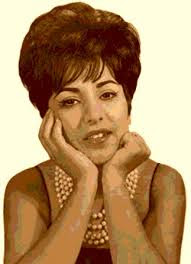25 Sambas
Cantoras De Bossa Nova
1998
Tracks:
01. Maysa - Por Causa De Vocé
02. Nara Leao - Maria Moita
03. Maysa - A Felecadade
04. Wanda - Vivo Sonhando
05. Elza Laranjera - Corcovado
06. Jane - Com Acucar,Com afeto
07. Olivia Hime - Tarde
08. Maysa - Se Todos Fossem Iguas A Vocé
09. Ana Lucia - Tem Do
10. Elza Laranjera - A Noite Do Meu Bem
11. Alaide Costa - Insensatez
12. Wanda - Desafinado
13. Maysa - Eu Sei Que Vou Te Amar
14. Claudia - Preciso Aprender A Ser So
15. Maysa - Dindi
16. Yvette - Preconceito
17. Ana Lucia - Carinhoso
18. Claudia - Mas Que Nada
19. Maysa - Agua De Beber
20. Lygia - Joao Ninguém
21. Wanda - Inutil Paisagem
22. Marilhia Medalha - Se O Amor Pudesse
23. Alda Perdigao - Amor De Trappo
24. Eliana Pittman - Que Maravilha
25. Maria Lucia - Malandro Quando
1998
Tracks:
01. Maysa - Por Causa De Vocé
02. Nara Leao - Maria Moita
03. Maysa - A Felecadade
04. Wanda - Vivo Sonhando
05. Elza Laranjera - Corcovado
06. Jane - Com Acucar,Com afeto
07. Olivia Hime - Tarde
08. Maysa - Se Todos Fossem Iguas A Vocé
09. Ana Lucia - Tem Do
10. Elza Laranjera - A Noite Do Meu Bem
11. Alaide Costa - Insensatez
12. Wanda - Desafinado
13. Maysa - Eu Sei Que Vou Te Amar
14. Claudia - Preciso Aprender A Ser So
15. Maysa - Dindi
16. Yvette - Preconceito
17. Ana Lucia - Carinhoso
18. Claudia - Mas Que Nada
19. Maysa - Agua De Beber
20. Lygia - Joao Ninguém
21. Wanda - Inutil Paisagem
22. Marilhia Medalha - Se O Amor Pudesse
23. Alda Perdigao - Amor De Trappo
24. Eliana Pittman - Que Maravilha
25. Maria Lucia - Malandro Quando
♫☆`*♥¸¸.•*¨*•♫☆`*♥¸¸.•*¨*•☆♫
.ღ•:*´♥`*:•ღ.
♫☆`*♥¸¸.•*¨*•☆♫`*♥¸¸.•*¨*•☆♫
.ღ•:*´♥`*:•ღ.
♫☆`*♥¸¸.•*¨*•☆♫`*♥¸¸.•*¨*•☆♫
A new beat in the 1950s: the Bossa Nova
A movement was born in the southern area of Rio de Janeiro, strongly influenced by jazz, marking the history of samba and Brazilian popular music in the 1950s. The bossa nova emerged at the end of that decade, with an original rhythmic accent which divided the phrasing of the samba and added influences of impressionist music and jazz and a different style of singing which was both intimate and gentle. After precursors such as Johnny Alf, João Donato, and musicians like Luis Bonfá and Garoto, this sub-genre was inaugurated by João Gilberto, Tom Jobim, and Vinicius de Moraes. It then had a generation of disciples and followers including Carlos Lyra, Roberto Menescal, Durval Ferreira, and groups like Tamba Trio, Bossa 3, Zimbo Trio, and The Cariocas.
Bossa nova is a well-known style of Brazilian music developed and popularized in the 1950s and 1960s. The phrase bossa nova means literally "new trend" (Portuguese pronunciation: [ˈbɔsɐ ˈnɔvɐ]. A lyrical fusion of samba and jazz, bossa nova acquired a large following in the 1960s initially among young musicians and college students. Since its birth, it has remained a vital part of the standard jazz repertoire.
A movement was born in the southern area of Rio de Janeiro, strongly influenced by jazz, marking the history of samba and Brazilian popular music in the 1950s. The bossa nova emerged at the end of that decade, with an original rhythmic accent which divided the phrasing of the samba and added influences of impressionist music and jazz and a different style of singing which was both intimate and gentle. After precursors such as Johnny Alf, João Donato, and musicians like Luis Bonfá and Garoto, this sub-genre was inaugurated by João Gilberto, Tom Jobim, and Vinicius de Moraes. It then had a generation of disciples and followers including Carlos Lyra, Roberto Menescal, Durval Ferreira, and groups like Tamba Trio, Bossa 3, Zimbo Trio, and The Cariocas.
Bossa nova is a well-known style of Brazilian music developed and popularized in the 1950s and 1960s. The phrase bossa nova means literally "new trend" (Portuguese pronunciation: [ˈbɔsɐ ˈnɔvɐ]. A lyrical fusion of samba and jazz, bossa nova acquired a large following in the 1960s initially among young musicians and college students. Since its birth, it has remained a vital part of the standard jazz repertoire.
♥



































































+Front.jpg)


















No comments:
Post a Comment